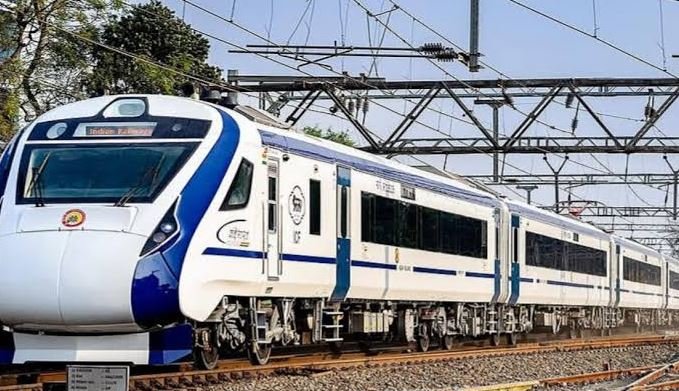The recent spell of heavy rains and flash floods in Jammu has not only inundated homes and displaced families but also disrupted one of the most vital arteries of mobility i.e. rail connectivity. When landslides blocked the Jammu–Udhampur section and forced the suspension of the newly launched Jammu–Katra shuttle, commuters found themselves cut off, stranded in districts already reeling from devastation. In such a scenario, the announcement of a temporary flood special train service between Shri Mata Vaishno Devi Katra and Sangaldan is more than a logistical arrangement; it is an affirmation of the railways’ role as a first responder during a crisis.
From September 8 to September 12, the special unreserved train will run twice daily, carrying passengers across Reasi, Bakkal, Dugga, and Sawalakot before reaching Sangaldan. The return service will follow the same route in the afternoon, ensuring people in flood-hit Reasi and Ramban are not left in isolation. For the displaced, the stranded, and those with urgent travel needs, this temporary measure is a lifeline. It represents not only the movement of trains on steel tracks but also the movement of hope across communities that have endured sleepless nights of uncertainty. Railways have historically been more than a mode of transport; they are symbols of continuity. In times of natural disaster, their role expands beyond carrying passengers to carrying relief, reassurance, and resilience. The Katra–Sangaldan Flood Special is an example of quick response, filling the gap created by a broken shuttle service and ensuring that mobility, the foundation of relief and recovery, is maintained. At a moment when road connectivity remains fragile and power and water supply are faltering, trains serve as a steady thread connecting people to resources, families, and faith. Yet, as welcome as this initiative is, it also raises hard questions. Why must we depend on temporary fixes when the vulnerabilities of the region’s railway infrastructure are no secret? The Jammu–Katra shuttle, introduced on September 1 with much fanfare, could not survive even two weeks before succumbing to the fury of nature. Landslides between Ramnagar and Manwal have repeatedly exposed the fragility of tracks in rain-prone stretches. Each time, restoration becomes a firefighting exercise, but long-term resilience remains a distant promise. The cost of fragile infrastructure is not measured only in delays but in the daily struggles of ordinary people whose lives are disrupted with every monsoon cloudburst. The geography of Jammu and Kashmir demands foresight and investment. Rain, floods, and landslides are not aberrations; they are recurring features of life in the region. Sustainable railway planning here requires not just laying tracks but fortifying them against predictable hazards. Protective embankments, advanced monitoring systems, and climate-resilient engineering are no longer optional; they are essential. If India can envision high-speed corridors in its plains, it must also ensure that its hill tracks are not rendered useless at the first sign of heavy rain. The suspension of the Jammu–Katra shuttle is a reminder that modern transport projects must be backed by modern safety mechanisms. The launch of the Katra–Sangaldan Flood Special thus carries two messages. The first is one of relief, the ability of railways to adapt and provide stopgap solutions in times of crisis. The second is one of reckoning that temporary relief cannot substitute long-term vision. Stranded passengers may reach home this week, but without durable infrastructure, the region will face the same crisis again next year and the year after. The role of the railway is not merely to respond but to prepare, to ensure that steel tracks are not only lifelines in fair weather but resilient pathways during storms.
For the people of Reasi, Ramban, and beyond, the flood specials are welcome, a gesture of care during hardship. But as an editorial reflection, it is vital to look beyond the immediate and demand accountability for the future. Relief today must be accompanied by planning for tomorrow. The people of Jammu deserve infrastructure that endures, services that do not falter at the first sign of rain, and a transport system that stands as strong as the spirit of those it seeks to serve. The trains will run for five days, but the lessons they carry should last far longer.




